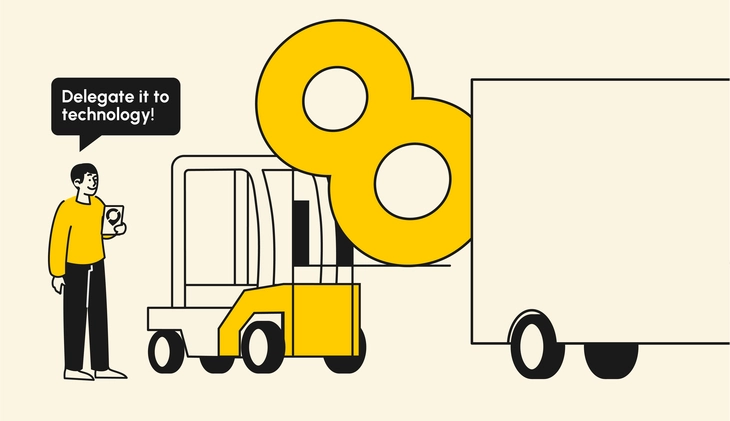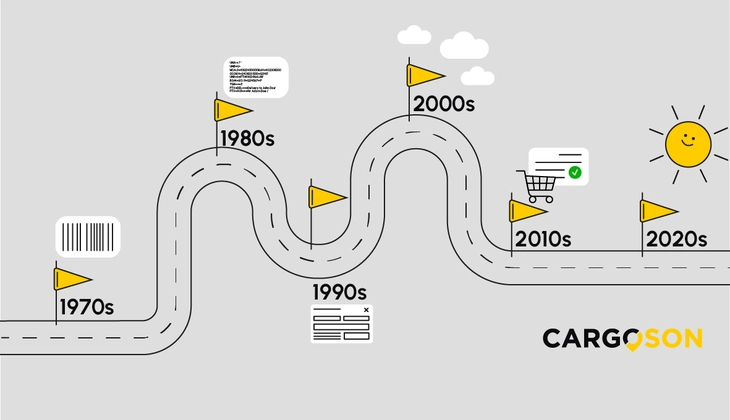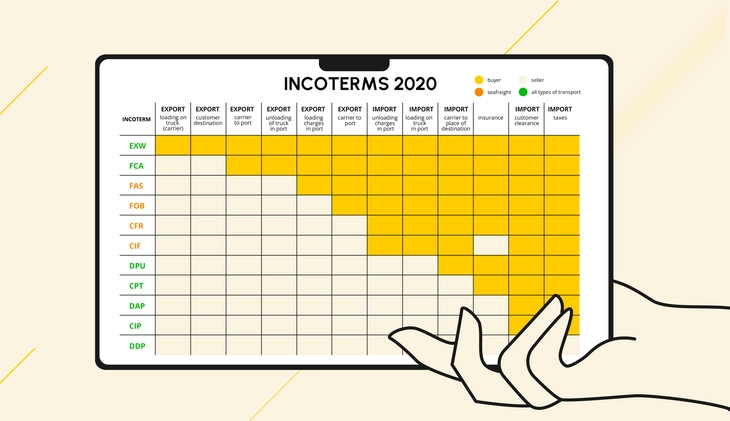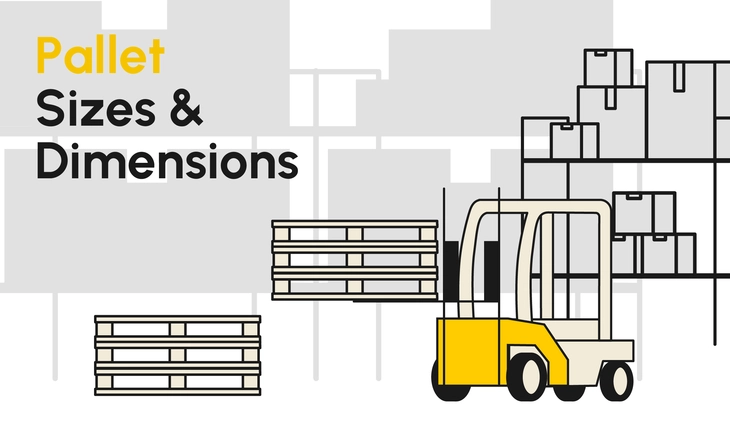Most manufacturers, wholesalers and retailers still manage their freight through multiple carrier websites and Excel spreadsheets. Cloud-based transport management software puts all of that into one system that you access through your web browser.
Traditional TMS systems are installed on the customer's premises, cost a lot upfront, and take months to install. A cloud-based TMS works differently. You sign up, get set up in a few weeks, and start shipping without buying any servers or software.
Web-based TMS solutions let you compare rates from all your carriers, book shipments, and track everything from one dashboard instead of logging into ten different carrier websites.
What is a Cloud-Based Transportation Management System?
A cloud-based TMS is a web-based software solution that manages all aspects of freight transportation through internet browsers and mobile apps. Traditional software makes you install programs on your computers, but a cloud-based transportation management system runs completely online. Your logistics team can access freight management tools from anywhere with an internet connection.
Here's how a cloud-based TMS works by hosting all the software on remote servers that the provider maintains. This SaaS TMS approach means you don't need to buy, install, or maintain your own hardware and software infrastructure.
Traditional TMS software is expensive upfront, takes forever to implement, and needs ongoing IT maintenance. Cloud TMS solutions skip all that hassle and give you enterprise-level functionality for a monthly subscription.
Cloud-Based TMS Advantages for Modern Shippers
Instant Implementation and Scalability
Online transport management systems get deployed in weeks instead of months. No hardware to buy, no complicated installations, no system integration headaches. Your team starts managing shipments right away and the platform grows with your business automatically.
Cloud-based TMS implementation typically takes 1-4 weeks compared to 6-18 months for traditional on-premise systems. Solutions like Cargoson can have shippers managing freight within days of signing up.
Multi-Carrier Integration
Modern cloud-based shipping software connects directly with hundreds of carriers through pre-built API and EDI integrations. Instead of setting up separate technical connections with each transport provider, you get access to your whole carrier network through one platform. Some TMS providers like Cargoson will integrate any carrier for you, for free (while others charge you for that and make you wait months or years).
Cloud-based TMS does not automatically equal carrier integration software!
Most TMS software do not directly integrate carrier APIs. But some, like Cargoson do. This means you don't have to log into multiple carrier websites or manage separate rate sheets from each transport provider. Cargoson's cloud-based TMS platform integrates with carriers by setting up direct API connections that automatically sync rates, transit times, and tracking information. Lots of these API connections are already pre-built and ready for use, but any customer can request a new carrier integration, for free, and this will be done within a few weeks - carrier integrations are a priority for Cargoson's cloud TMS team..
Rate Comparison and Cost Optimization
Cloud logistics software gives you instant access to negotiated rates from all your carriers, so you can compare them side-by-side for every shipment. This transparency helps you find the most cost-effective options while keeping service quality up.
Freight rate management software built into cloud platforms handles complex pricing structures, fuel surcharges, and seasonal adjustments automatically. Cloud-based TMS saves money by providing transparent rate comparisons that help shippers pick the most cost-effective transport option for each shipment.
Enhanced Visibility and Tracking
Web-based transportation management gives you shipment tracking across all carriers in one consolidated dashboard. Your team doesn't need to check multiple carrier websites anymore or chase down delivery confirmations through email.
How Much Does Cloud-Based TMS Cost?
A cloud-based TMS typically costs between €200-€1000 per month for mid-sized companies, scaling based on shipment volume and features needed. Check out Cargoson's pricing for example. This is way less than traditional enterprise software costs.
Cloud-based TMS pricing models include monthly subscriptions that get rid of large upfront investments. Conventional systems might cost €100,000+ annually, but cloud transportation management platforms make enterprise-grade functionality accessible to companies of all sizes.
Cloud-based transport management software eliminates additional costs for IT staff, system maintenance, software updates, and backup infrastructure. Companies like Cargoson offer transparent pricing starting at €199 per month, making professional freight management accessible to smaller shippers.
Security and Reliability in Cloud TMS
Cloud-based TMS security includes enterprise-grade measures that often beat what individual companies can implement internally. Data encryption, regular backups, and redundant infrastructure keep your logistics information secure and accessible.
SaaS TMS providers maintain multiple data centers with automatic failover capabilities, delivering better uptime than most on-premise installations. Cloud-based TMS reliability is higher because providers specialize in maintaining robust infrastructure across multiple clients. And if systems go down, you can blame your TMS provider instead of yourself 😉
Integration Capabilities with Existing Systems
Cloud-based shipping software often integrates with ERP systems, warehouse management software, and e-commerce platforms. These connections automate data flow between systems, cut down on manual entry errors and keep information consistent across your software stack.
Popular cloud TMS integrations include Microsoft Dynamics 365 Business Central, SAP, NetSuite, Odoo, Magento, and WooCommerce, which makes your web-based TMS the logistics hub for your entire technology stack. Cargoson offers pre-built integrations with major business software platforms, which simplifies the connection process.
Environmental Benefits and Sustainability Reporting
Cloud logistics software includes freight carbon emission calculations and sustainability reporting features. These tools help shippers make environmentally conscious transport decisions while meeting corporate sustainability goals and regulatory requirements.
Cloud-based TMS environmental benefits extend to the infrastructure itself, as cloud providers optimize server utilization across multiple customers rather than maintaining dedicated hardware for individual companies.
What is the Right Cloud-Based TMS for Your Business?
A few months ago, we put together a huge comparison (based on 200 pages of research) of the TOP 17 transport management software providers (geared towards shippers). If you'd like specific names and honest comparisons between providers, check out that article. But here are some criteria:
The best cloud-based TMS should integrate with your existing transport partners and provide access to additional carriers when needed. Your chosen system should handle your negotiated rates, fuel surcharges, and complex pricing structures accurately.
The best cloud-based TMS should integrate with your existing transport partners and provide access to additional carriers when needed. Your chosen system should handle your negotiated rates, fuel surcharges, and complex pricing structures accurately.
Cloud TMS selection criteria include intuitive user interfaces, scalability for business growth, and reliable customer support. Look for solutions that can handle increased shipment volumes and additional users as you expand.
Cloud-based TMS evaluation should include testing with your actual data. Most online transport management systems offer demo environments where you can test functionality before making commitments. Learn more about how to select multi-carrier shipping software effectively.
Implementation Best Practices
Cloud-based TMS implementation starts with clear objectives and stakeholder buy-in. Start with a thorough evaluation of your current logistics processes and identify pain points that the new system should address.
Cloud-based TMS training is typically minimal for web-based TMS solutions, but give your team time to get familiar with new workflows and reporting capabilities. Learn more about how to implement a transportation management system effectively.
Making the Switch to Cloud TMS
For manufacturers, wholesalers, and retailers managing complex carrier relationships and freight operations, cloud-based TMS delivers enterprise system functionality at a fraction of the traditional cost and complexity.
Companies using cloud-based TMS gain advantages over competitors still relying on manual processes or outdated on-premise systems. The transition enables more efficient, transparent logistics management that directly affects customer satisfaction and operational costs.
Would you like to discuss these benefits with our logistics experts before you decide? Schedule a consultation with Cargoson and let's talk about your specific case.






